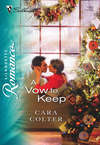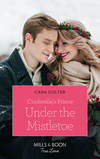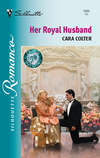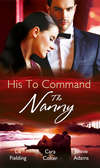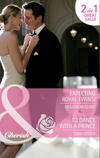Loe raamatut: «A Vow to Keep»
She turned to face her fate.
An intruder, she thought, would have been much easier to handle.
Did he have to see her like this? Her pajamas, which had seemed to be making such a statement about the new her—not caring about the opinions of others, eccentric, free—now made her feel vulnerable in front of the kind of man a woman did not want to see without her makeup on.
Rick Chase was six feet of utter male appeal. He was tall, broad shouldered, the perfection of an impeccably cut suit accentuating rather than disguising the sleek power of his build.
How was it possible she’d forgotten how handsome he was? Or maybe she’d just refused to think about it, about him.
Because the one thing her battle-scarred emotions did not need was a complication like the one that had just materialized at her front door.
Dear Reader,
I grew up in Calgary, and have a delightful memory of being twelve years old and taking the bus downtown with friends. Naturally, we spent our return bus fare on milk shakes at the Hudson’s Bay Company and had to walk home.
An hour or two later, at the halfway point, we made a pit stop at my friend Mary McGuire’s grandmother’s house, in Calgary’s very posh Mount Royal neighborhood, where we were fortified with cookies.
Even now, some thirty-odd years later, I can remember that house. I remember the hardwood floors and the windows, the staircase, a covered porch off one of the upstairs bedrooms, a huge yard. But most of all I remember the feeling of that house—gracious and dignified, a witness to the ebb and flow of love and of life. I have been fascinated with old houses ever since, and if I wasn’t a writer I would love to have the job Linda Starr has in this book!
I hope you enjoy reading her story as much as I enjoyed writing it!
Cara Colter
A Vow to Keep
Cara Colter

CARA COLTER
and her real-life hero, Rob, live on an acreage in British Columbia. Their cat, Hunter, graciously shares his house with them. They own seven horses, including two new “babies”—Wiener and Schnitzel, a pair of Fjord cross colts.
Cara Colter on A Vow To Keep:
“My partner, Rob, is a building contractor, and he hates old houses. The only mysteries they reveal to his pragmatic soul are walls that are out of square and wiring that needs to be redone. A proud new owner of a historic home once asked Rob what he thought the house needed, and Rob looked him straight in the eye and said, ‘A match.’ I, on the other hand, am a complete romantic and love old houses. I think they are our history, and that the walls hold songs and stories.”
You can reach Cara at www.cara-colter.com
Dedicated to the people of the city of Calgary
CONTENTS
PROLOGUE
CHAPTER ONE
CHAPTER TWO
CHAPTER THREE
CHAPTER FOUR
CHAPTER FIVE
CHAPTER SIX
CHAPTER SEVEN
CHAPTER EIGHT
CHAPTER NINE
PROLOGUE
THE ringing of the phone was shrill and incessant. Rick Chase startled awake, glanced at his bedside clock. Red digits flashed 4:00 a.m.
No good ever came from a phone ringing in the darkest hours of the night.
He picked up the receiver, aware he was braced for the worst, and hoping for a drunk who had dialed the wrong number.
“Hello?”
“Uncle Rick?”
The last vestiges of sleep were gone. He sat up in bed, the blankets falling away from his naked chest. He fumbled for the light on his night table, as if being able to see would help him hear better.
“Bobbi?”
“Sorry to wake you. I wanted to talk to you before I went to class.”
Class? At four in the morning? And then he remembered. His goddaughter was taking her first year of university in Ontario, two thousand miles—and a three-hour time difference—from Calgary.
“Are you okay?” he asked.
“I’m fine.” A tremble in her voice said maybe she wasn’t.
“What’s up, Bo-Bo?” He used her childhood nickname by instinct, knowing it would make her feel safe and listened to, but then he was sorry he had, because it reminded him of her on her tricycle, pigtails flying, days gone that were never coming back. Happy days, uncomplicated.
“I’m worried about my mom,” she wailed.
A fist closed around his heart. He was amazed that his voice sounded as calm as it did when he said, “What about your mom? What about Linda?”
“Did you know she sold our house?”
He felt a little ripple of shock. Linda had sold the house? And not gone through his real estate company? His and her late husband’s company? It was half her company, and she had not used it?
“I didn’t know that, no.”
“She bought a shack, Uncle Rick, a falling down shack in Bow Water. She e-mailed me a picture of it.” She made a gagging noise, Bo-Bo still there, hiding within that oh-so-sophisticated college girl after all.
Bobbi had been raised in the lap of luxury, in a seven thousand square foot Riverdale manor house that backed onto the Elbow River. What she considered a shack and what most people considered a shack were probably two very different things. Still, Bow Water could be a rough neighborhood. Why would Linda, of all people, buy there?
“She’s moved in already,” Bobbi said, her voice strained with injury. “She didn’t even give me a chance to say goodbye to our old house, to pack a few of my own things. She sold the car, too.”
“The Mercedes?” Linda couldn’t be having financial problems. It was impossible. The company was in excellent health.
“Oh, she still has a Mercedes, but you’ll have to see it to believe it.” A dramatic sigh, and then, “Uncle Rick, she cut her hair. I think my mom is losing her mind.”
He wondered, troubled, if it was a genuine possibility. Linda Starr had survived a terrible tragedy in the loss of her husband thirteen months ago, now her only child was away at school. Could she be falling apart?
No, not Linda, always refined, always composed, always classy. Even in the middle of chaos, she had retained that almost regal refinement, as if she was untouchable, unmovable, a rock that the stormy sea washed around. Linda Starr seemed like the least likely person to be losing her mind.
“What is it you want me to do, Bobbi?”
“Go check on her!” This was said with a certain feminine impatience, as if he was supposed to know what to do.
“Okay,” he said. “I’ll check on her, before work.”
From the heavy sigh, a little more was expected of him.
“You need to ask her to come back to work. She’s becoming reclusive and weird.”
He heard the reproach in her voice and knew it was at least partly deserved. “I’ve tried to talk to your mother, Bobbi. She doesn’t want to talk to me.” Let alone work with me. Besides, it had been at least fifteen years since Linda’d had any active involvement in the company.
“Give me a break! You could sell snake oil to a rattlesnake farmer, and you can’t talk my mother into getting her life back?”
He wanted to deflect the accusation by keeping it light. “Is there such a thing as a rattlesnake farmer?” he asked.
Bobbi was not about to be sidetracked. “You abandoned her after Daddy died. Everybody did.”
He wanted to say, She wanted to be abandoned, to defend himself, but suddenly his position seemed indefensible.
“And she was so good to you after you went through your divorce from Kathy. Is that seven years ago? Already?”
“Yes.”
Another memory, as tender as that of Bobbi on her trike, of her mother taking both his hands in the warmth of hers, looking into his eyes, saying, It will be all right, Rick. Maybe not today, but someday.
She had been right, too. When the pain, the humiliation of failure, had subsided, he had realized his divorce had freed him to do all the things he loved. He had bought a motorcycle first, and then, with his appetite for solitary adventures whetted, he had taken up traveling. Not the posh, resort kind of traveling his ex-wife would have enjoyed, but true exploring of a world so rich in diversity and culture he sometimes wondered if he would have time to discover and experience all the things he wanted to.
Still, he knew his contentment with his own lifestyle, combined with the wariness created by his divorce, had made him a solitary soul. Maybe, somewhere in the past seven years, he had even become a selfish, self-centered man.
What other excuse did he have for not being there for a friend? Though, when he thought of Linda, he thought their relationship might be a little more complicated than friendship.
“I’m sorry,” he said quietly to her daughter.
“Her whole life was about me, and now I’m gone, too. Uncle Rick, she needs a purpose. Promise me you’ll find something at Star Chasers for her to do.”
A gauntlet laid down. It would be foolish to pick it up. What did he know about helping a woman whose dignity had been shredded and whose heart had been broken? On the other hand, he knew all about promises. Vows. He didn’t want to be that responsible for another human being’s happiness, ever again.
“She needs to be around people,” her daughter said with the absolute authority of one young enough to still believe she knew everything. “She needs to have something to do. She loves old houses. She still has pictures of some of the early ones that you and her and Dad restored together. That interest could be channeled constructively, before she sells off anything else.”
He heard himself saying, cautiously, “I can’t make your mother do anything she doesn’t want to do, Bobbi.”
“Promise me you’ll try.”
Maybe it was the hour of the morning that weakened him, or maybe it was the pleading in that tender young voice.
“Okay. I promise.”
“Thank you, Uncle Rick!” There was hope in her voice, as if she truly believed he could fix something so desperately fragile. But he already felt regret. He knew he shouldn’t get involved in this. Helping someone who was heart weary was like treading on sacred ground.
Still, he’d offer Linda a job, she’d say no and his duty would be done.
But the promise he’d just made implied more than a lackluster effort. That was the problem with promises. They required way more of a man than he was prepared to give.
Dumb to get involved, Rick thought, staring at the phone after he’d hung up, but what if Linda did need something? She would be too proud—and too angry—to ever ask him.
Anger he deserved, he reminded himself, rubbing the last of the sleep from his eyes. Anger he deserved because he had kept her husband Blair’s secrets from her.
And he kept one still.
What had he just let himself in for? He got out of bed, went to the kitchen and poured a glass of milk. One thing he knew, he was not going to face Linda Starr without a plan.
CHAPTER ONE
AT FIRST she thought he was not there.
Linda Starr laid low in the long September-gold grass and adjusted the binoculars on the reedy area of bulrushes just beyond the boundary of her picket fence–enclosed backyard.
The ground was gilded silver with frost, but she was only vaguely aware of the cold penetrating her pajamas as the morning light, cool and gray, seeped into the darkness, turned the river’s back eddy into a startling strand of light. Across the river, downtown Calgary hummed to life, headlights like strings of moving pearls joined the high-rise reflections in the still waters of this tiny, quiet inlet of the swift moving Bow River.
Unbelievable that she had seen him here, nearly in the heart of the city. It had been a gift, and she realized, resigned, it was one that might not be repeated.
She began to feel the cold and to notice the steady hum of life across the way, in stark contrast to the stillness where she lay shivering. She had turned on the coffeepot before she had come out, and now its scent drifted out her open back door, calling her back to the warmth of the tiny house she had only slept in for three nights.
She rose to her knees, groaned at the stiffness in them and then froze. She saw him, his silhouette that of a ghost taking solid form as the light deepened to rose on the river. Her breath caught in her throat as she witnessed alchemy, dawn turning white feathers to platinum. A whooping crane. Linda had read about him after her first sighting yesterday.
He was one of the rarest North American birds, and the tallest. His wingspan was seven and a half feet. Most people would never see such a bird in their lifetimes. She, startled at her own whimsy, took it as a sign that she had made the right decision to buy the tiny house behind her.
Her knees protested, and she shifted her weight ever so slightly but enough that the bird turned to her suddenly, the brilliant red of his face filling her binoculars, the yellow of his eye defiant. With a buglelike trumpet—ker-loo, ker-loo—he stretched his wings so that she could see the black-tipped undersides, witness how truly magnificent he was.
He lifted his wings, and then rose, all power and grace, into a morning sky that had turned a shade of turquoise blue that left her eyes smarting. She could hear the whoosh as he claimed the freedom of the heavens. She watched him, felt as if he were setting course for the morning star.
Whimsy, again. Where was that coming from? She had always considered herself so pragmatic. Not, she reminded herself, that a pragmatic woman would have purchased the faintly dilapidated little house behind her.
She kept the binoculars trained on him long after he was just a speck. That’s when she became aware of the miracle.
Happiness had eased into her, as sneakily as the morning light had chased away the darkness.
She contemplated the feeling for a moment, let the word roll through her mind. Only thirteen months ago her world had turned upside down, been broken to pieces as if picked up by a tornado and smashed back down. She remembered thinking on that black, black day, I will never again know joy.
Or that most dangerous of things, hope.
There was that whimsy again, because spotting the rare bird made her hope for a life where tiny surprises could delight, where cold grass could make her skin tingle with the simple awareness of what it was to be alive.
She had barely formed that thought when the hair on the back of her neck rose. She was aware, before she heard the softly cleared throat, that she was no longer alone in her backyard. Ah well, Linda chastised herself, that was a lesson about believing in happiness that she should’ve learned. It was like throwing a challenge before the gods, one they seemed all too eager to accept.
The intruder must be a murderer, she decided, just as her daughter had warned her when Linda had insisted on buying this little house, next to the bird sanctuary, in an old, old neighborhood where crumbling houses, such as hers, stood next to in-fills and add-ons and houses lovingly restored to dignity.
Mother. What are you thinking? You’ll be murdered in your sleep, Bobbi had said. As if dead bodies littered the quiet streets of one the oldest districts in Calgary. Though, of course, those scruffy young neighbors, tattooed and long haired with the pit bull and boards over their windows, had given Linda pause.
Well, she thought, with faint satisfaction, if her daughter was right about the murderer, at least Linda was not asleep. In her pajamas, though! Heart hammering, ridiculously embarrassed about the pink flannel printed with cartoon devils, she rose off her knees, stretched with what she hoped was a lack of concern—she was sure the criminal element could smell fear—and turned to face her fate.
Her heart stopped.
A murderer, she thought, would have been much easier to handle. She became aware that her pajamas were soaked nearly clean through from the frost, and she was afraid her breasts were probably doing something indecent.
From the cold. Not from him.
At least she hoped the reaction was from the cold. She folded her arms firmly over that area before he got any ideas.
Did he have to see her like this?
The pajamas, which had seemed to be making such a statement about the new her—not caring about the opinions of others, eccentric, free—when she had plucked them off the rack, now made her feel faintly ridiculous and all too vulnerable.
“Rick,” she said, hoping to load that single word with as much frost as what painted her lawn. He flinched, so she knew she had probably succeeded, and wondered why the success gave her so little satisfaction.
Rick Chase was six feet of utter male appeal. He was tall, broad-shouldered, the perfection of an impeccably cut suit, probably Armani, accentuated rather than disguised the sleek power of his build.
Gorgeous, she thought, almost clinically, a man of forty in his absolute prime. His features were masculine and clean, his chin faintly dimpled, those amazing eyes as green as the edges of still water, and just as calm. He was dressed for work—the suit charcoal-gray, the white shirt crisp, the tie silky and classy and perfectly knotted at the swell of his throat.
He was really the kind of man a woman did not want to see without her makeup and her hair done and a dress that turned heads. She reminded herself she had just been happy that she had not worn makeup in more than a month, happy with the new her.
Trust a man to wreck happiness without half trying.
She noticed for all the magazine cover perfection of his looks, his dark hair—devil’s-food-cake brown—was spiky and uncooperative, still wet from the shower. It wakened some rebel in her that wanted to press down the worst rooster tail, the Dennis-the-Menace one, with her fingertips. She noticed, surprised, there were strands of gray threaded through the rich brown.
How was it possible he was still unmarried, unattached? He had been divorced for more than seven years. And how was it possible she’d forgotten how handsome he was? Or maybe it was just that she had refused to think about it, her battle-scarred emotional self not needing a complication like the one that had just materialized in her yard. Even when he’d left message after message for the past thirteen months, she had refused to conjure the image of him. Somehow she had known it would make her ache. Make her feel as lonely and as pathetic as only a betrayed woman could be.
Betrayed by her husband, now dead thirteen months, and betrayed by this man who stood in front of her, her husband’s friend and business partner, who had known about her husband’s secrets and had never once…
Don’t go there, she ordered herself.
“Linda.”
They stood staring at each other as morning deepened around them. Across the river a horn honked and tires squealed.
She was aware of time standing still.
“You look like you’re frozen,” he finally said.
She resisted the temptation to look down at her chest to see if that’s where he was drawing his conclusion.
“What are you doing here?” she asked, not politely, either.
“I called this morning. When I didn’t get an answer I decided to drop by.”
Drop by, as if this was right on his way to work, which it wasn’t. Drop by, as if she had sent him her new address, which she hadn’t.
She was a woman who had felt the complete and humiliating sting of being too easily fooled. Now she felt she could sniff out a half-truth at five hundred yards.
“And what exactly is the reason for your sudden concern, Rick?”
Something in his eyes grew very cold, and made her shiver more than her frosty pajamas. She had known Rick for twenty years. Had she ever seen him angry? She was suddenly aware that there were facets to him that were powerful and intriguing, and it felt like a terrible weakness that she was suddenly curious…
“Don’t say that as if I haven’t been concerned all along,” he said with surprising force. “It’s you who has chosen not to return my calls. Because I respected that, does not mean I was not thinking about you.”
“Well, thank you,” she said, her tone deliberately clipped. “And you have chosen not to respect my need for space now, because—?”
He glared at her, raked a hand through the wet tangle of his hair. The Dennis-the-Menace tail popped right back up. He looked very much like he wanted to cross the ground between them, take her shoulders and shake her. But the temper died in his eyes, and he said evenly, “I need your help with something.”
Patting down that rooster tail, for one.
“You’re asking a woman who is out in her yard in her pajamas at dawn for help with something? You might want to rethink that.”
She had said it with mild sarcasm, but he chose not to be offended. Instead he grinned. Oh, she wished he would not have done that. The masculine pull of him was almost instant, more powerfully alluring than before. A smile like his—faintly reckless and unabashedly sexy—could build a bridge right over the painful history that provided such a safe and uncrossable chasm between them.
“I’ll take my chances. You never know when you might need the skills of a woman who’s handy with binoculars.”
She glanced down at the binoculars that hung around her neck.
“So, what were you doing? Spying on the neighbors?”
“In a manner of speaking,” she said, fighting down the impulse to explain herself. She was done with that. She was free to watch the birds at dawn if she damn well pleased, and offer explanations to no one. It was the new—and improved—Linda Starr.
“You’re shivering.” His voice was unexpectedly gentle. Pity? The new and improved Linda Starr did not want his pity; she wanted to be insulted by it. Instead his gentle tone touched the place in her where she least wanted to be touched. The place that said, in the darkness of the night when she could not outrun it, I want someone to care about me.
“The coffee is on in the house,” she said coolly. “You can come in and tell me what you want.”
And no matter what it was, she would say no to him.
She would say no because he was part of a world she was trying desperately to leave behind, and because he made her aware that while she thought she was being independent she probably only looked wildly off balance and possibly pathetic.
She would say no just for practice, and for all the times she had said yes when she hadn’t wanted to.
Rick Chase followed Linda toward her house thinking Bobbi really had no idea what she had asked of him. He could tell from the warriorlike pride and anger in Linda’s face when she brushed by him that she was going to say no, no matter what he asked.
So, that made his life simple, right? All he could do was try, even Bobbi couldn’t expect more than that.
Linda had taken him by complete surprise. She looked astounding, standing outside in her pink pajamas, shivering. She was different. Her hair, short now, light brown and terribly misbehaved, scattered around the dainty, defiant features of her face.
The last time he had seen her she had been in black. Her hair had been black, too, pulled into a sophisticated bun at her nape. She had looked elegant, cold and unforgiving.
“Did you know?” she had asked him, her eyes, momentarily vulnerable, pleading for him to say, no, he hadn’t known.
He had not answered, and in his lack of an answer, she had known the truth.
His own sense of shame, for being a keeper of the secret—secrets, one that she still did not know about—preventing him from being there for her. Not that he didn’t go through the motions. He called. He left messages. But when she didn’t return his calls, he did not pursue it. Was relieved not to pursue it.
Still, the difference he saw today was not just in Linda’s physical appearance. Before, she had always seemed faintly fragile, now she seemed strong. Before, she had carried herself with a certain remoteness, now she looked engaged. Before she had seemed controlled, now she seemed…was passionate too strong a word?
No.
Who was this new Linda?
He remembered how Bobbi had finished the conversation last night. “I should never have agreed to college, not this year. I better come home. Do you think I should come home?”
Of course he thought she should come home! He certainly didn’t want to be the one put in charge of the rescue of Linda Starr, especially since it was now perfectly evident to him she would resent rescue or even the insinuation one was needed.
“Not that I have a home to come home to,” Bobbi had announced, faint sulkiness in her tone. “My stuff is in boxes!”
Last night he had taken that as evidence that maybe something was wrong.
But now, standing in the brightening morning, looking at Linda’s back, her shoulders set with pride, Rick knew he’d never seen a woman who looked less in need of rescuing. Had he been talked into playing the good Samaritan—used the flimsy excuse of her daughter’s stuff in boxes—to come and see her for himself?
Linda, he calculated, was thirty-eight years old.
She had looked ten years older than that at her husband’s funeral. Now she looked ten years younger. She looked confident, defiant, madder than hell at being found so vulnerable. And she looked beautiful in a way that threatened a wall he had long ago erected around his life.
His job here was nearly done. He would make Linda an offer. She would refuse. He could report to Bobbi that her mother appeared to be fine. More than fine. On fire with some life force that he had not seen in her before, or at least not for many, many years.
Could he leave now, without making the offer? If he left like this he would be filled with the regret of a challenge only partially completed. His own self-preservation was not the issue here, though he felt the threat of the new Linda strongly.
The issue was if Linda was really okay.
She went through the back door of her house, bare feet leaving small prints in the silver grass. He followed them, directly into her kitchen.
He looked at her house with a curiosity he had no right to feel, a spy gathering info. Was it the home of a woman who was doing okay? Or was it the home of a woman secretly going to pieces?
Certainly her house from the outside had been a bit of a shock, had underscored Bobbi’s assessment of the situation. Though many of these Bow Water houses were getting million-dollar facelifts, thanks to their close proximity to downtown, Linda’s was not one of those. Evaluating houses was his specialty, and hers had no curb-appeal. It was a tiny bungalow, shingle-sided, nearly lost in the tangled vines that had long since overtaken it. It was a long, long way from the gracious manor nestled in the curve of the Elbow River that she had just sold.
Still, the interior smelled headily of coffee and spices he could not identify. Despite the fact that it needed work, it had a certain undeniable cottage charm that suited the Linda with short messy hair and funny flannel pajamas.
She motioned at a chair and poured coffee into a sturdy mug. She slapped the mug down in front of him and left the room in what seemed to be a single motion, leaving him free to inspect for signs of craziness. For Bobbi’s benefit? He was kidding himself.
It was obvious she had just moved. Boxes were stacked neatly, labeled Kitchen, waiting to be unpacked. The floor’s curling linoleum needed to be replaced and so did the cabinets, the kitchen sink and the appliances. He was willing to bet the neglect was just as obvious in the rest of the house. Still, he could see the place had potential. Possibly original hardwood floors under that badly damaged linoleum, deep windowsills, high ceilings, beautiful wood moldings with that rich, golden patina that only truly old wood had.
She came back into the kitchen. She had tugged a sweatshirt over her pajamas, gray and loose. He was accustomed to women making just a little more effort to impress him, but for some reason he liked it that she hadn’t. He liked that somewhere, under the layers of pain, they were still Rick and Linda, comfortable with each other.
The sweatshirt had the odd effect of making her seem very slight, the kind of woman a man could daydream about protecting, if he wasn’t careful. A man could remember how, for a moment, when he had told her he had a problem, the wariness had melted from her eyes, briefly replaced with trust.
She got her own coffee, but didn’t sit. Instead she stood, rear end braced against the countertop, and regarded him through the steam of her coffee.
Her eyes were brown, like melted chocolate. Once, he had thought, they were the softest eyes in the world. Now they had shades of other things in them. Sorrow. Betrayal. Maturity. But all those things just seemed to make them more expressive and mysterious, the way shadows brought depth to a painting.
Her hair was two shades lighter than her eyes. He realized, slightly shocked, that the black had probably never been her true color. It was as if, before, she had worn a mask, and now the real Linda was beginning to shine through.
“So,” she said, “say it. I can tell you’re thinking it.”
She’d always been perceptive, almost scarily so. He looked at her lips, full, moist and incredibly sensuous. What might they taste like? He hoped she wasn’t perceptive enough to gauge that renegade thought!
“Okay,” he said, as if he had not thought about the full puffiness of her lips. “It seems like a rough neighborhood.”
She cocked her head at him, as if she was politely interested in his opinion, so he rushed on.
“And the house seems, um, like a lot of work for a woman on her own. Why did you sell your Riverdale house for this?”
She took a sip of her coffee, as if debating whether to talk to him at all. Then she sighed. “That house never felt like mine. It was Blair’s, his love of status in every cold stone and brick. I hated that house. I especially hated it after the renovation. A glass wall thirty feet high is monstrous. Besides, it was a ridiculous place for a woman alone to live.”
Tasuta katkend on lõppenud.
